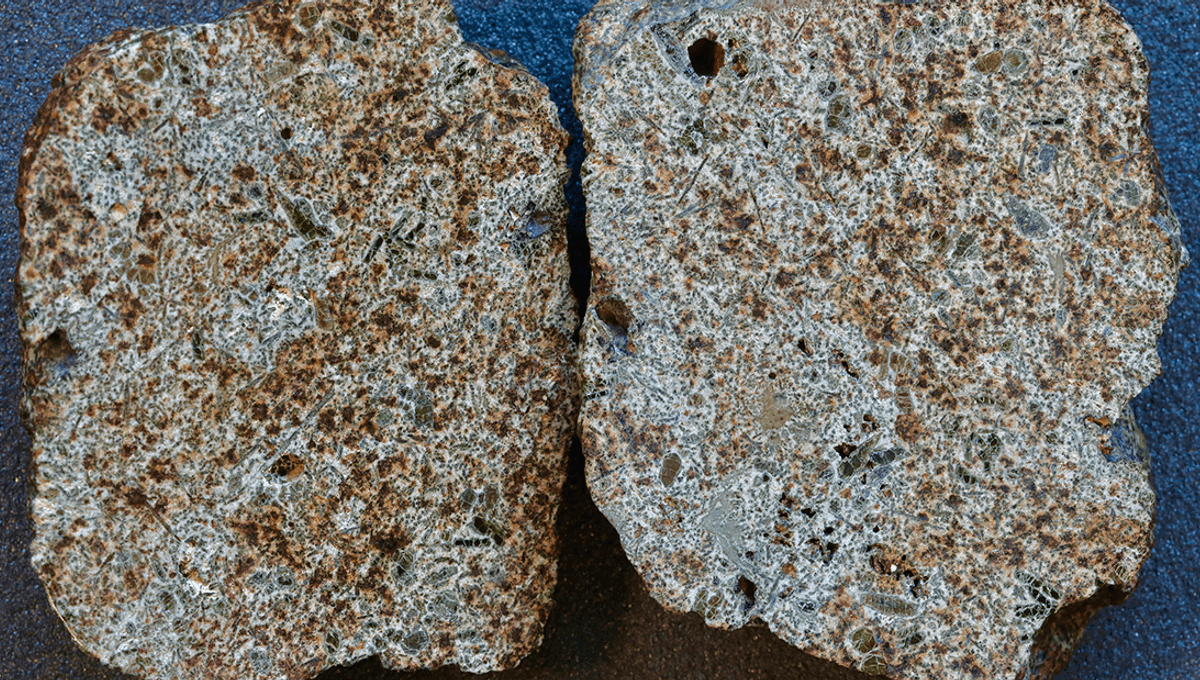
In May 2020, in the Erg Chech region of the Sahara Desert in Algeria, scientists discovered several pieces of meteorite like no other we have found.
Earth gets hit by meteorites fairly frequently, with thousands of pieces of space rock falling onto the planet every year, giving us an opportunity to study rock formation in the early Solar System. Erg Chech 002, as the meteorite was designated, was particularly interesting to scientists due to its age, containing minerals that crystalized around 4.56556 billion years ago, making it slightly older than Earth, and from the very dawn of the Solar System.
The rock was determined to be an “ungrouped achondrite” – a type of rock formed from melted minor planets in the early Solar System.
“Despite the large number of samples in the meteorite record that originate from the crust or mantle of rocky bodies (about 3,100 are known today), these rocks provide an incomplete picture of the diversity of the differentiated bodies that formed in the early Solar System,” one team studying Erg Chech 002 explained in a 2021 paper.
Ninety-five percent of these meteorites are believed to come from just two places: 75 percent from the crust of a large asteroid, presumed to be 4 Vesta, and 20 percent from the mantle of an even larger body, which is presumed to have been destroyed.
Achondrites are usually basaltic, formed from the rapid cooling of magma. This one was different, the bulk of the composition being andesite. It’s possible that andesite meteors are formed by the melting of objects made of chondrite, which were thought to be common in the early Solar System. However, the fact that we haven’t found similar meteorites to Erg Chech 002 suggests that most of these early pieces of information on our Solar System’s formation may have been largely destroyed or buried deep within other bodies as it evolved.
“EC 002 is clearly distinguishable from all asteroid groups, and no object with spectral characteristics similar to EC 002 has been identified to date,” the team wrote in their paper. “This suggests that the earliest differentiated protoplanets that populated the Solar System, as well as most of their debris, were certainly destroyed or subsequently accreted to the growing rocky planets, making the discovery of meteorites originating from primordial crusts an exceptional occurrence.”
The paper is published in PNAS.
Source Link: This Meteorite Is Likely The Remains Of An Extinct Ancient Protoplanet